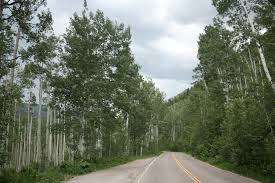The North Carolina Museum of Natural Sciences’ Science Café opened discussions regarding the protection of North Carolina’s temperate forests on Thursday, Aug. 29.
According to Robert Doudrick, director of the U.S. Forest Service southern research station, the Forest Service is working to incorporate ethnobotany into its research methods.
Doudrick studies ethnobotany, which is the study of how plants are used in the daily lives of different cultures, and uses his field to promote sustainability in his job at the Forest Service.
“He gave me this book within five minutes of meeting him and said ‘Here, read this,’” said Meg Lowman, a tropical rain forest canopy biologist. “I put it under my pillow and absorbed it all. It’s called Traditional Forest Related Knowledge and it’s his Bible.”
Doudrick said that forests are essential for our survival as they produce oxygen, promote biodiversity, allow for carbon fixation, filter groundwater and control erosion. People also use forests for recreation and they are extremely important to our economy.
“This country in the South is still considered the wood basket of the country,” Doudrick said. “More fiber, whether it’s two-by-fours or paper, is produced in the South than any country in the world.”
However, these resources have been steadily declining.
“Forests in this country, and in the world, are under assault from lots of threats,” Doudrick said.
He cited problems such as invasive plants, animals, pathogens, forest fires and most importantly humans. According to Doudrick, humans not only help cause the other threats, but also pollute and are using unsustainable methods to harvest forest resources.
“In the next 50 to 60 years,” Doudrick said, “We project that in an area of the South from Texas to Virginia and from Arkansas clear down to the Caribbean, we will lose an area of forest equivalent to the state of South Carolina.”
Doudrick said research on sustainable practices can help save our forests, which is where ethnobotany can help. He said we should study Native American culture to learn how they interacted with the forest.
“I spent twenty-some years in school,” Doudrick said. “But I also know that you can learn from living on the land for centuries.”
He said he believes that western science simply cannot gather as much information about the environment in the required time period as is already known in Native American culture.
“We’re pretty convinced that there is a great deal to be learned,” Doudrick said, referring to both knowledge about the ecosystem of the forest itself and cultural knowledge.
According to Doudrick, Native American cultures could be used to learn about important aspects of sustainability from the traditions of native peoples. For example, he said that we could think about the future of the environment sooner.
“The National Forest Service’s planning horizon is five, 10, 15 years,” Doudrick said. “Native Americans used to plan on a seven generation horizon.”
Doudrick also said he respected how close native cultures are to the environment, and he said it was made evident by the prominence of nature in their traditional stories. This is something Doudrick believes humans should emulate, as it leads to an inclination to treat the land respectfully.
“The dilemma that we are challenged with is that that is not my knowledge,” Doudrick said. “That knowledge belongs to those people. That is their way of life, their culture. We’ve got a very good track record for working with these people. They feel pretty abused, and are not always forthcoming with their knowledge.”
The Forest Service is starting to collaborate with Native American tribes. The Forest Services’ work will be mutually beneficial, as their goals are to promote sustainability and preserve Native American traditions.
Doudrick said he is optimistic about the future sustainable forestry in ethnobotany.
“We just had a really great meeting at the North Carolina arboretum talking to the Cherokee about the preservation of some of their plant material,” Doudrick said. “Ethnobotany issues are coming back around.”
Future Science Café topics include biopharmaceuticals, scorpions and the quality of water.
Forums take place Thursdays at 7 p.m. at the North Carolina Museum of Natural Sciences.








